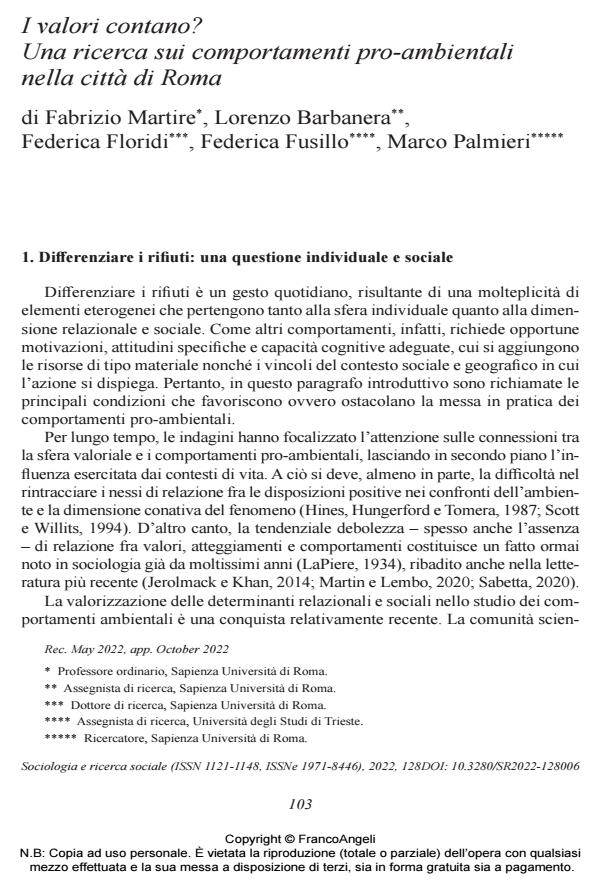I valori contano? Una ricerca sui comportamenti pro-ambientali nella città di Roma
Titolo Rivista SOCIOLOGIA E RICERCA SOCIALE
Autori/Curatori Fabrizio Martire, Lorenzo Barbanera, Federica Floridi, Federica Fusillo, Marco Palmieri
Anno di pubblicazione 2022 Fascicolo 2022/128
Lingua Italiano Numero pagine 19 P. 103-121 Dimensione file 247 KB
DOI 10.3280/SR2022-128006
Il DOI è il codice a barre della proprietà intellettuale: per saperne di più
clicca qui
Qui sotto puoi vedere in anteprima la prima pagina di questo articolo.
Se questo articolo ti interessa, lo puoi acquistare (e scaricare in formato pdf) seguendo le facili indicazioni per acquistare il download credit. Acquista Download Credits per scaricare questo Articolo in formato PDF

FrancoAngeli è membro della Publishers International Linking Association, Inc (PILA), associazione indipendente e non profit per facilitare (attraverso i servizi tecnologici implementati da CrossRef.org) l’accesso degli studiosi ai contenuti digitali nelle pubblicazioni professionali e scientifiche.
In this article, the relationship between values and the conative component of human action is explored in the context of pro-environmental behaviors, con- sidered actions that can offer benefits to the natural environment. In the literature the environmentally friendly behavior is distinguished according to the skills it requires to be done properly. The results of this research show that age and a high qualification influence a wide range of pro-environmental behavior, especially those that do not require the use of particular knowledge. On the other hand, the relationship between individual values and eco-sustainable action is robust when pro-environmental behaviors are put into practice that require uncommon skills and knowledge to be applied without error. This has been seen in the context of the differentiation and packaging of household waste, a demanding task that requires at the same time environmental knowledge and values oriented towards ecocentrism.
Fabrizio Martire, Lorenzo Barbanera, Federica Floridi, Federica Fusillo, Marco Palmieri, I valori contano? Una ricerca sui comportamenti pro-ambientali nella città di Roma in "SOCIOLOGIA E RICERCA SOCIALE " 128/2022, pp 103-121, DOI: 10.3280/SR2022-128006